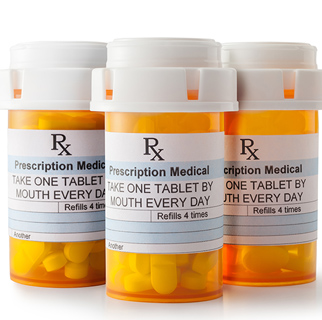Teens and Prescription Medicines
When taken as directed, prescription medicines can prevent, treat, and cure diseases. But if they are used without a prescription or misused, they can cause serious physical and mental health problems.
A growing number of American teens are using prescription pills to get high. In fact, prescription medicine abuse is common in all parts of our society. It ranges from the inner city to suburbs and rural areas. New substance abusers ages 12 and older use prescription medicines more than any other illegal substance.
Some teens fake symptoms to get a prescription. Or they take someone else’s pills. Some mix medicine with alcohol. Some take more than the recommended dose of their own medicine. Any of these examples of misuse can cause serious and even deadly results. These include overdose, addiction, seizures, stroke, and even death.
Many young people abuse prescription medicines because they believe they are safer than street drugs and legal. They are wrong. These pills can be just as dangerous if not taken correctly.
Dangerous doses
A risky activity among some teens is called "pharming.” Teens trade and mix medicines, then take a mix of pills. This is often done along with alcohol or cough medicine to get high. Some teens take several pills at a time. Others swallow them by the handful, often not knowing which medicines they are combining.
Open market
Prescription medicines are free and easy to find in parents’ and especially grandparents' medicine cabinets. Teens can also get them from school friends who have prescriptions for them. Or from friends who have stolen them from family members.
Teens can also get prescription medicines online through illegal websites that don't ask for a prescription or a health exam. Other websites provide information about how to get high using certain prescription pills by themselves or in combinations.
Many teens don't know that getting prescription pills online or on the street without a prescription is illegal and can lead to arrest.
Reasons for use
Teens abuse prescription medicines for many reasons. These include depression, anxiety, peer pressure, modeling parental behaviors, boredom, wanting to escape their problems, or simply to get high.
What parents can do
Talking with teens about healthy ways to cope with their challenges can help them deal with stress or unhappiness in positive ways. Here are other ideas:
-
Be a role model. If you don’t want your teens to abuse drugs, don’t misuse them yourself. If you have a drug problem, seek help.
-
Keep track of your prescription medicines. Teens tend to take medicines from a friend or their home. Knowing the number of pills you have will allow you to monitor them for any loss.
-
Keep your medicines in a secure place. Keep your medicines locked up, not in the bathroom or kitchen cabinet.
-
Get rid of leftover medicine. This will decrease the opportunity for your teen or their friends to abuse these medicines. Ask your pharmacist about safe medicine disposal options in your area.
-
Discuss the dangers of “pharming,” or mixing prescription medicines with other substances. Many teens who take prescription medicines for nonmedical reasons combine them with other drugs or alcohol, greatly increasing their overdose risk.
-
Consider keeping naloxone on hand. This prescribed medicine counters the effects of opioid medicines to prevent overdose deaths. If you suspect your child or their friends are abusing opioids, talk to your healthcare provider about having naloxone on hand.
If you believe your child could be using prescription medicines for nonhealth reasons, talk with your child's healthcare provider or a mental health professional. Prescription abuse is hard for people to beat on their own. Especially if it includes addictive pills. Most abusers need the help of a substance abuse counselor.
Medical Reviewers:
- L Renee Watson MSN RN
- Liora C Adler MD
- Tennille Dozier RN BSN RDMS
